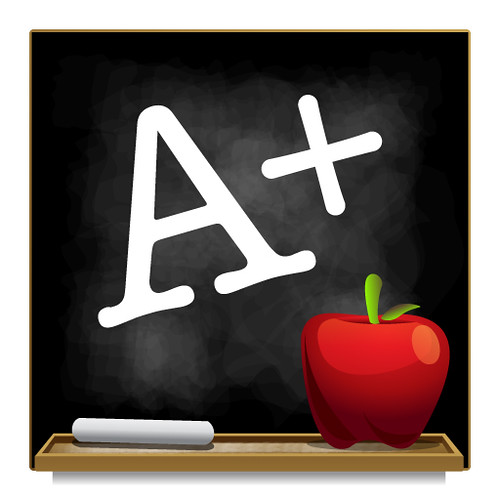
Whenever I talk with someone who is considering using Project Based Instruction (PBI) in their classroom I can be assured that the topic of assessment will be one of the first questions asked. Assessment, both formative and summative, is a topic that is guaranteed to bring out opinions from educators and this is magnified by teachers trying to visualize assessment in a PBI classroom.
So, what does assessment look like in my classroom? Well, we have tests and quizzes and daily "warm-ups" and written explanations and.......
Wait, that sounds just like a regular classroom? YES! That is exactly the point I am trying to make. Even though we are considered "100 % PBI" does not mean that we give up assessing the learning of our students.
There are a couple of items that we do assess differently and that, really, is all that we need to discuss. If you have options, in your bag of tricks, of assessing the learning that is going on in your class, then you are already at a point where you are ready to be a PBI teacher.
Some things that WILL look different or that you don't normally see in a conventional classroom include: Project Grades, Collaboration Grades, Oral Presentation Grades, Critical Thinking Grades, or even Group Assessment Grades.

PROJECT GRADES - A project is more than just putting together a pretty poster or a power point explaining some research that has been conducted. There needs to be definite demarcations for the beginning or introduction to a new concept or idea; a middle where research, hands-on learning, or direct instruction is going on; and an ending where the new concept or idea is presented by the students to show their level of knowledge of the material.
At each stage of this process there are chances to assess knowledge. There might be a pre-assessment to confirm the knowledge levels of each student during the introduction phase. During the middle stages there can be written quizzes, (or even tests for larger, longer lasting projects), there can be oral quizzes, there can be quick "knowledge checks" taken through clicker systems or surveys. We collect "Warm-ups" at the beginning of class or "Tickets Out" at the end of class as another way to check for understanding. Your imagination is the only limiting tool.
COLLABORATION GRADES - While we are walking around monitoring group work, we have an intuitive "grade" of individual efforts in each group. To put a numerical value to what we already know we can assign collaboration grades at the midpoint and at the end of the project. This might be done with a survey or Google Forms where each student gives the other students and themselves a grade (1 - 10, 1 - 5, etc.). Then you add them all up and determine the grade for each student. Don't worry about equity, students are both ruthless (about the other group members) and honest (about themselves). A fun way to do this is to give the groups a total score that the individual scores must add up to. Just make sure the total isn't evenly divisible by the number of students in the group.
ORAL PRESENTATION GRADES - Whenever we can, we make sure that the students are presenting their projects to an audience. They have worked hard and deserve to show off their new-found knowledge. The audience might be a panel of experts from a business, education majors from the local college or university, parents of students, other students, or whatever combination of people you want to come up with. We often hear "I haven't touched algebra in 20 years," or " I was never good at math." But these panelists don't have to grade on content, they can grade for how the students presented: did they have good rapport with the audience? did they have interesting videos/podcasts/powerpoint slides/etc.? did one member of a group dominate the presentation or were they equal partners? Just list the objectives you would like graded and let them do the rest.
Assessment, as should be no surprise, is done in a PBI classroom just like a conventional classroom. I hope this short post has dispelled any rumors that PBI means we don't have to do assessment. That rumor needs to go into the same category of unfounded myths as the one about PBI can't have direct teaching. Don't get me started on that one. Or, maybe that's a topic for another post.
